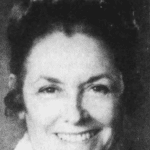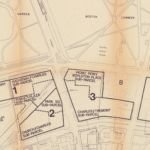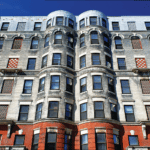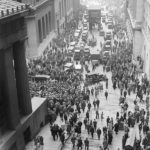
by Steve Adams | Feb 12, 2024
Federal transportation officials continue to oppose a connection from the former Boston Flower Exchange property to Interstate 93, a requirement for full buildout of a 1.6 million-square-foot life science campus.

by Steve Adams | Jan 25, 2024
A British billionaire who owns a Boston restaurant group and waterfront commercial property pleaded guilty to insider trading after prosecutors charged him with sharing stock tips with his employees and acquaintances.

by Diane McLaughlin | Dec 25, 2022
C. Bernard “Bernie” Fulp’s helped found the region’s first Black-owned and -managed bank, broke color barriers in the C-suite and knocked down old-fashioned notions of how banks could drive growth over his 40 years in banking.

by James Sanna | Dec 25, 2022
Margaret Carlson broke barriers throughout her life: a career-minded woman who started her own business in the 1950s, and the first woman to sit on Boston’s powerful “Vault” committee in 1977.

by Steve Adams | Dec 18, 2022
Boston Properties’ Mortimer Zuckerman pulled the plug on $150 million worth of high-rise offices, apartments and hotel rooms overlooking Boston’s Public Garden 45 years ago this month.

by Steve Adams | Dec 18, 2022
Fred Salvucci has always thought big when it comes to transportation projects and how they could shape the Massachusetts economy, driving changes like the Big Dig that continue to shape today’s commercial real estate investment 30 years later.

by Diane McLaughlin | Dec 11, 2022
After two unsuccessful attempts in the United States’ early decades to create a lasting national bank, the country had no central bank for much of the 19th century and the beginning of the 20th century.

by James Sanna | Dec 4, 2022
A ceremonial first bus ride from South Station to Logan Airport heralded the first day of the future for Boston’s newest neighborhood on the last day of 2004.

by Diane McLaughlin | Nov 27, 2022
Over a decade after credit unions were legalized in Massachusetts three groups of telephone workers in different parts of the state all established their own credit unions on Nov. 8, 1922.

by Steve Adams | Nov 20, 2022
A rising part of today’s Boston skyline has a surprisingly long backstory stretching out to 1989.

by James Sanna | Nov 13, 2022
A statewide ballot initiative spearheaded by Cambridge landlords did what years of local efforts couldn’t on Election Day in 1994: End decades of rent control in Boston, Cambridge and Brookline.

by Diane McLaughlin | Oct 30, 2022
It has no basis in fact, but a popular theory holds that October is a dangerous month for stock markets thanks to three major market crashes of the 20th century that began in Octobers.

by Diane McLaughlin | Oct 30, 2022
Mark O’Connell’s banking career has spanned over three decades and seen him lead a former community bank into becoming a leader in the digital realm.

by James Sanna | Oct 23, 2022
The turn of the millennium saw a storied but gritty Boston music venue demolished, heralding a transformation in how Massachusetts’ colleges and universities shaped their neighborhoods.

by Steve Adams | Oct 14, 2022
Boston’s most iconic skyscraper had an inauspicious beginning when design flaws in its mirrored glass facade caused 500-pound panels to crack and crash to the sidewalk below from 1971 to 1973.

by Diane McLaughlin | Oct 8, 2022
If you were a married woman before the mid-1970s, it was tough to impossible get a fair loan or even a credit card without your husband co-signing. And if you were single – forget it.

by James Sanna | Oct 2, 2022
A massive fire devastated Chelsea for the second time in its history 49 years ago this month. What followed was an investment boom still paying dividends today.

by Diane McLaughlin | Sep 25, 2022
The BankAmericard launched through what became known as the “Fresno Drop,” a mass mailing of plastic credit cards to 60,000 residents of Fresno, California.
by Banker & Tradesman | Sep 11, 2022
On this, our anniversary, we say a hearty “thank you” to the generations of businesspeople and workers who’ve read our pages and stood by us through the economy’s many ups and downs.

by Cassidy Norton | Sep 11, 2022
The Warren Group owes some of its success and longevity to its CEO falling off a mountain.























